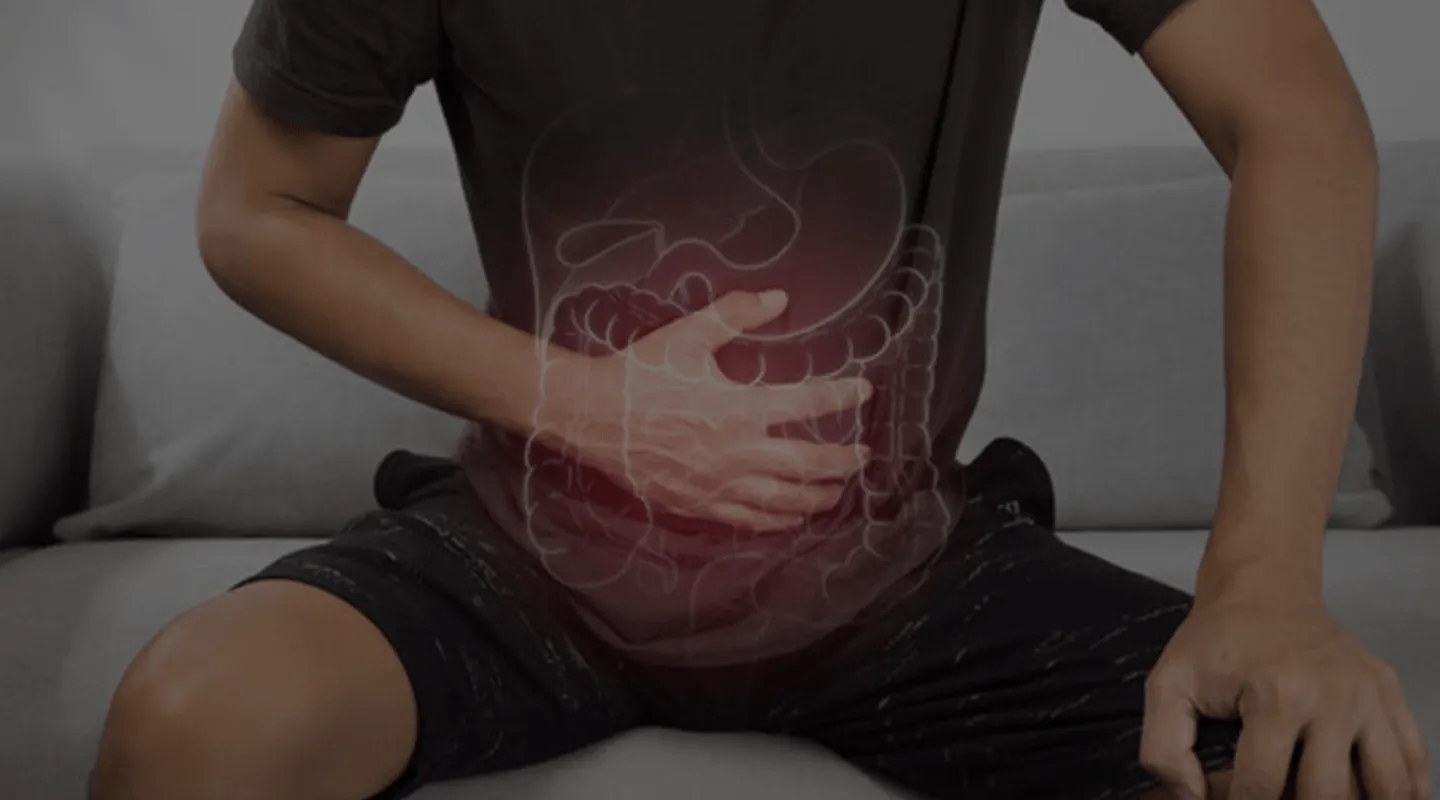
Colonoscopy
Your Colonoscopy in Tunisia at an Affordable Price
Benefit from a colonoscopy in a modern clinic, with a comfortable and well-organized medical stay.
How does it work?
Colonoscopy: What is it?
A colonoscopy is a medical procedure used to detect potential alterations or abnormalities in the large intestine (colon) and rectum. It involves inserting a long, flexible tube called a colonoscope into the rectum; this tube has a small camera at its end, allowing the doctor to visualize the inside of the entire colon. If necessary, this procedure also allows for the removal of polyps or other abnormal tissues through the colonoscope. Tissue samples, called biopsies, can also be taken during the colonoscopy.
Why have a colonoscopy?
- Examine intestinal signs and symptoms. Discover how a colonoscopy can help your doctor explore various potential causes of stomach pain, rectal bleeding, persistent constipation or diarrhea, and other intestinal issues.
- Screen for colon cancer. If you are over 50 and have an average risk of developing colon cancer — meaning you don’t have other risk factors related to your age — your doctor may recommend a colonoscopy every 10 years or more frequently to detect any potential tumors. This procedure is an effective method for detecting and preventing colon cancer.
Colonoscopy is one option for colon cancer screening. Talk to your doctor about your options. - Look for other polyps. If you’ve already had polyps, your doctor may recommend a follow-up colonoscopy to look for and remove any additional polyps. This is to reduce your risk of colon cancer.
What is the cost of a colonoscopy in Tunisia?
The price of a colonoscopy varies depending on the establishment chosen. In general, a colonoscopy in Tunisia costs between 250 and 350 euros. The price may increase if the colonoscopy is associated with other procedures such as a biopsy.
Risks of a Colonoscopy
A colonoscopy has few risks. Rarely, complications from a colonoscopy may include:
- an adverse reaction to the sedative used during the exam;
- Bleeding from the site where a tissue sample (biopsy) was taken or a polyp or other abnormal tissue was removed;
- A tear in the wall of the colon or rectum (perforation);
How to prepare for a colonoscopy?
Before a colonoscopy, you will need to cleanse (empty) your colon. Any residue in your colon can obscure the view of your colon and rectum during the exam. To empty your colon, your doctor may ask you to:
- follow a special diet the day before the exam. As a general rule, you will not be able to eat solid foods the day before the exam. Drinks may be limited to clear liquids — plain water, tea and coffee without milk or cream, broth, and soft drinks. Avoid red liquids, which can be mistaken for blood during a colonoscopy. You may not be able to eat or drink anything after midnight the day before the exam;
- Take a laxative. When undergoing a colonoscopy, it is common for your doctor to suggest using a laxative, either in tablet or liquid form. You may also be asked to take the laxative the day before the exam or to take it both the day before and the day of the exam for better efficacy;
- Use an enema kit. In some cases, you may need to use an over-the-counter enema kit — either the day before the exam or a few hours before the exam — to empty your colon. This method is generally only effective for emptying the lower part of the colon and is generally not recommended as the primary means of emptying your colon;
- It is imperative that you inform your doctor of your treatment at least one week before the exam. This is particularly crucial if you have diabetes, hypertension, heart problems, or if you are taking medication or supplements containing iron;
You may need to adjust your doses or temporarily stop taking them.
Our advantages


What to expect during the colonoscopy procedure
During a colonoscopy, you will wear a gown, but probably nothing else. Sedation is generally recommended. Sometimes a mild sedative is given as a pill. In other cases, the sedative is combined with a pain reliever intravenously to minimize any discomfort. You will begin the exam lying on your side on the examination table, usually with your knees pulled towards your chest. The doctor will insert a colonoscope into your rectum. The scope — which is long enough to reach the entire length of your colon — contains a light and a tube (channel) that allows the doctor to pump air or carbon dioxide into your colon. The air or carbon dioxide inflates the colon, allowing for a better view of the colon wall. When the scope is moved or air is introduced, you may experience abdominal cramps or the urge to defecate. The colonoscope also contains a tiny video camera at its end. The camera sends images to an external monitor, allowing the doctor to explore the inside of your colon precisely. The colonoscopy process also involves inserting instruments into the channel to collect tissue samples (biopsies) or remove polyps or abnormal tissues. Typically, this procedure takes 30 to 60 minutes and is performed by a qualified doctor. After the exam, it takes about an hour to begin recovering from the sedative.
Contact and request a quote for a colonoscopy
If you are considering having your colonoscopy as part of a general health check-up or because of digestive problems, trust the professionals at Tunisia Destination Santé. Our team is always at your disposal to assist and guide you through all the procedures. Feel free to contact us for more information and to request a free, non-binding quote for your colonoscopy.
Your health, our priority.
Request your free quote.
Frequently Asked Questions
Some alternatives include specific diets a few days before the exam, tablet-based preparations, or less voluminous liquid diets. Talk to your doctor to find a solution that suits your situation.
Yes, a colonoscopy can also identify inflammatory bowel diseases, such as Crohn’s disease or ulcerative colitis, as well as infections, diverticula, and other structural abnormalities of the colon.
Yes, but special precautions must be taken. Your doctor may advise you to temporarily discontinue anticoagulants or use alternatives to minimize the risk of bleeding.
Risks include complications related to anesthesia, intestinal perforations, and bleeding. However, the benefits of colorectal cancer screening may still outweigh the risks for some older patients, depending on their overall health.
Poor preparation can mask polyps or other abnormalities, thus reducing the effectiveness of the exam and potentially requiring a repeat colonoscopy.
Alternatives include the fecal immunochemical test (FIT), the fecal DNA test (Cologuard), and virtual colonoscopy (CT colography). However, a colonoscopy is necessary if abnormal results are detected.
Watch for signs such as severe abdominal pain, heavy bleeding, fever, or dizziness. Contact a healthcare professional immediately if you experience these symptoms.
Yes, although a colonoscopy is not always necessary to diagnose IBS, it can be performed to rule out other conditions, such as inflammatory bowel diseases, which have similar symptoms.
Sedation helps reduce anxiety and discomfort, making the exam more tolerable for the patient. It also allows doctors to perform the exam more efficiently and accurately.
Yes, advances such as high-definition colonoscopy, chromoendoscopy, and artificial intelligence for polyp detection have improved the accuracy and safety of colonoscopies.
